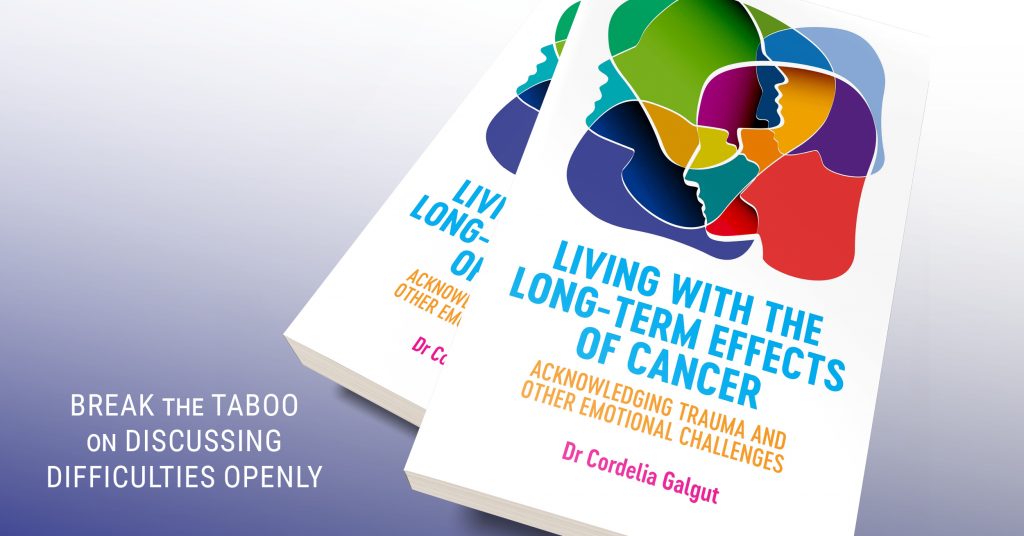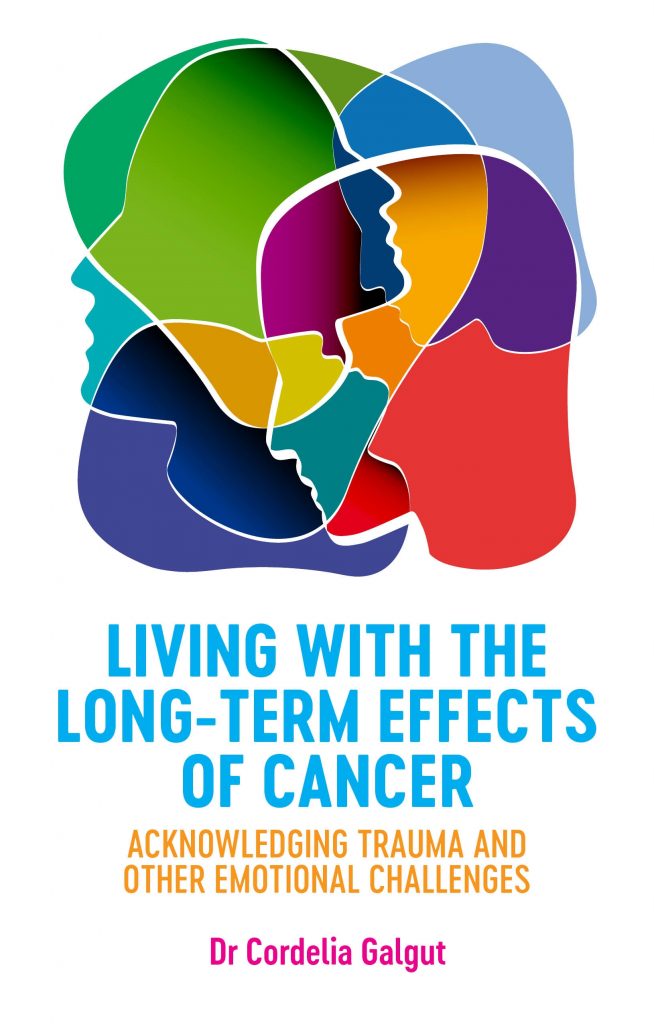Living with the Long-Term Effects of Cancer

Here’s a thought experiment: What would the experience of cancer be like if the psychological impact of the disease (and its treatment) gained as much attention as the physical impact of the treatments?
Well, to be clear, many of the physical side effects are still not known about and of those that are known about many are often unacknowledged. Nevertheless, recognition of the emotional impacts lag well behind recognition of the physical. I think that living with cancer – no matter what type – would be more bearable if the reality of what we experience were not denied or muted so often. Sadly, when it comes to the underdiscussed issue of cancer’s long-term effects, both emotional and physical, there is a very high mountain to climb before we will get widespread societal understanding. That’s why I wrote, Living with the Long-Term Effects of Cancer.
I had been so struck by the mismatch between that which my training in psychology, counselling and psychotherapy had taught me about life after an extreme trauma like cancer, and how I was actually experiencing it, that I felt compelled to write about this mismatch. I wish someone had enlightened me prior to emotionally supporting those with cancer, and prior to having it myself. I have made so many incorrect assumptions and the worst thing is; I thought I really understood the predicament of people with cancer. In reality I understood diddly-squat and that’s very uncomfortable for me to admit, even now.
I would wish for many things in an ideal world, especially regarding how we treat those who have had cancer; as a society and, as a reflection of that, within healthcare. It’s such a big and growing problem too, as more and more of us live on after cancer diagnosis. 1 in 2 people get and hopefully survive cancer. That’s a huge and scary ratio to digest.
There are many ways forward suggested in my book about living with cancer’s long-term effects, but below are two big and troublesome problems we all need much greater recognition of…
Suspend your judgement
More awareness is needed of the fact that people who have had cancer are grateful for their lives and feel terrible about those who are less fortunate and lose their lives to cancer. I’ve never met anyone who has or has had cancer who feels otherwise. People tend to assume we don’t think like this, though. It’s therefore incredibly hard to talk about how you feel, as a ‘survivor’. You feel so awkward, lest you are perceived as ungrateful. Indeed, people tell us we are the lucky ones and should just get on with our lives, as if we don’t know we are lucky! This sets up such a tension in the minds of people like me, who suffer long-term effects. We feel as though we should keep quiet, and many do. We do so with everyone; doctors, nurses, family, friends, even partners. It’s rare for someone to speak out as I do, and I have felt the full force of people’s anger for doing so often enough.
Dread of recurrence
I also wish more people would understand how much this terror of recurrence dogs the lives of those who survive. We often mute extreme feelings in our society and even saying that I have a dread rather than a fear of cancer recurrence can be met with, ‘you’re exaggerating’. I know others fear speaking out on this subject too, but there is pretty much a universal dread. Unless people have a cancer that won’t ever recur, they are going to dread it coming back. Granted, some people will be more scared than others, depending on their situation. But I haven’t met a person who has had cancer who isn’t aware that it is a strange, unruly and unpredictable beast and that the all clear is not a realistic hope for the vast majority of us.
Even I, who speak out and think about this subject so often, have been shocked and caught out by the depth of the terror I felt recently when I had to have a scan of my lower back because of pain. What consumed me most through the whole process was whether I had bone metastases or not. There don’t seem to be any but it’s been a nightmare, because the scan showed a cyst on an ovary, that needed investigating, too. And no doctor gets it really, it seems. Or rarely do they, especially given how long ago my diagnosis was. However, one doctor said to me recently that given my cancer history, they always have to think of possible cancer spread. And of course, I know breast cancer can metastasise at any point, even 20 or 30-years post diagnosis. So that dread never goes away…

Cordelia Galgut is a registered counselling psychologist in private practice. She was diagnosed with bilateral breast cancer 13 years ago and has authored a number of works on its effects, both physical and psychological.
For more from Cordelia Galgut on this under-discussed topic, pick up a copy of Living with the Long-Term Effects of Cancer now or visit www.cordeliagalgut.co.uk for more information.